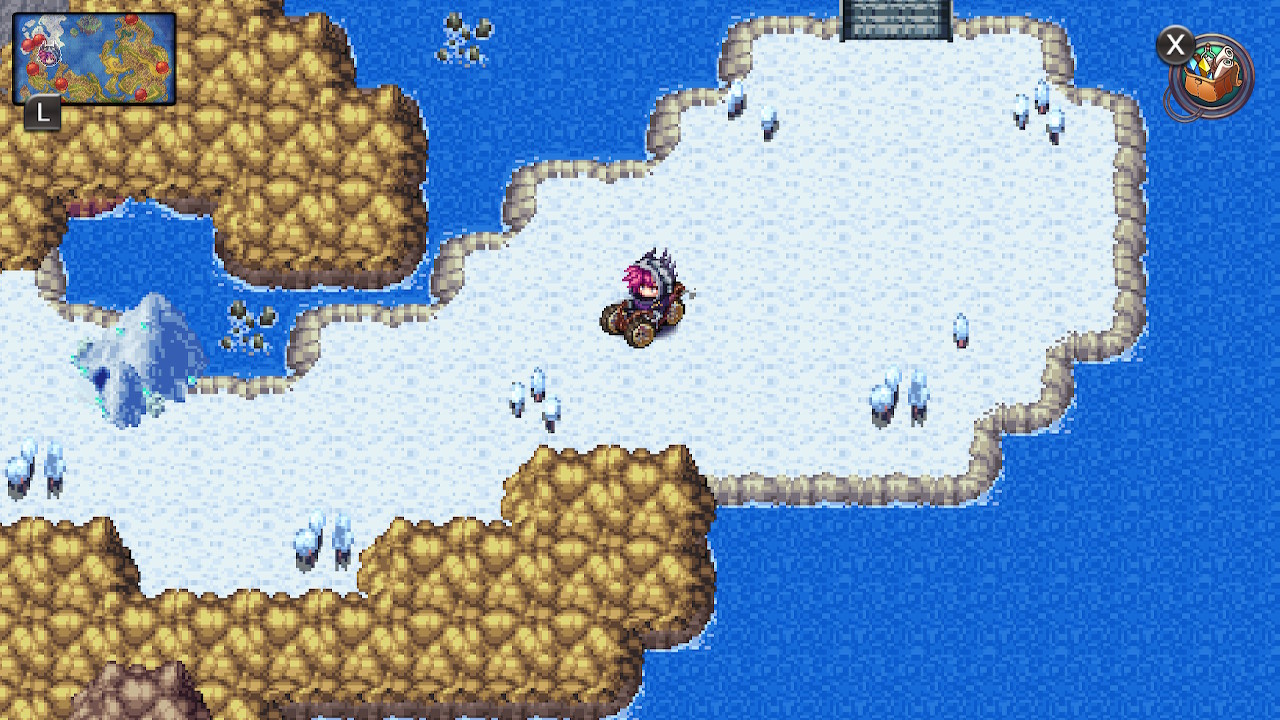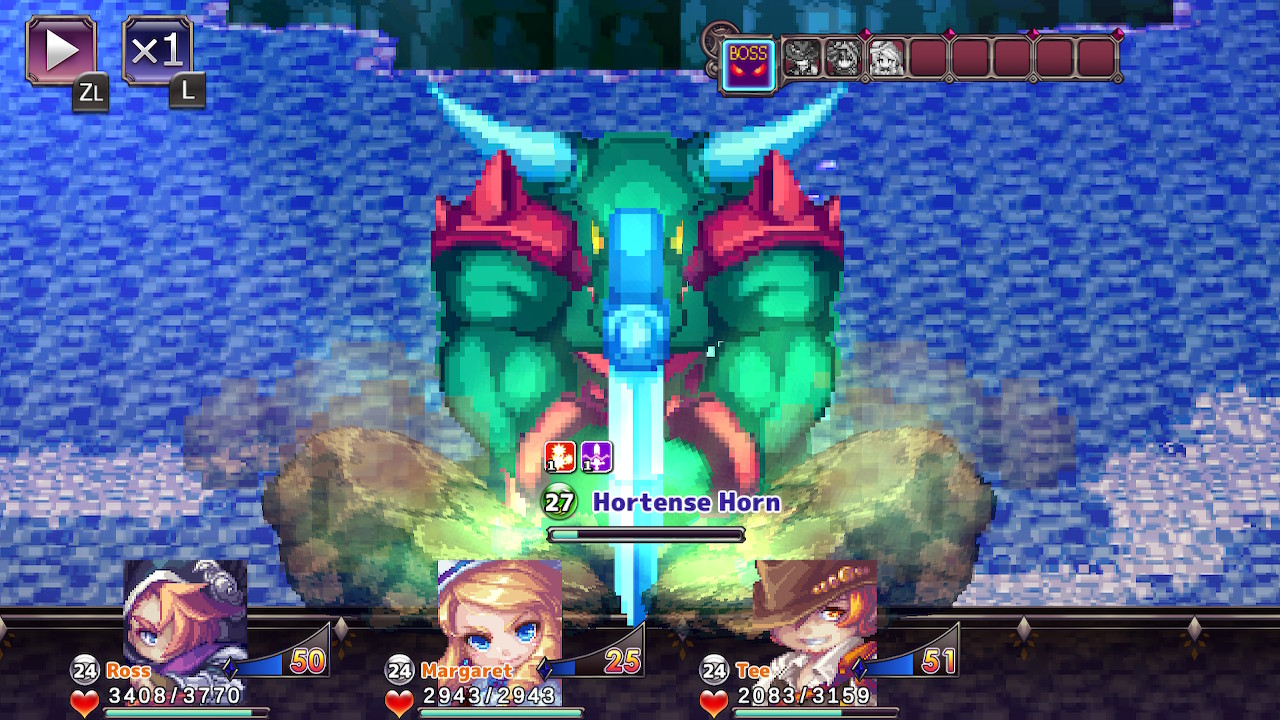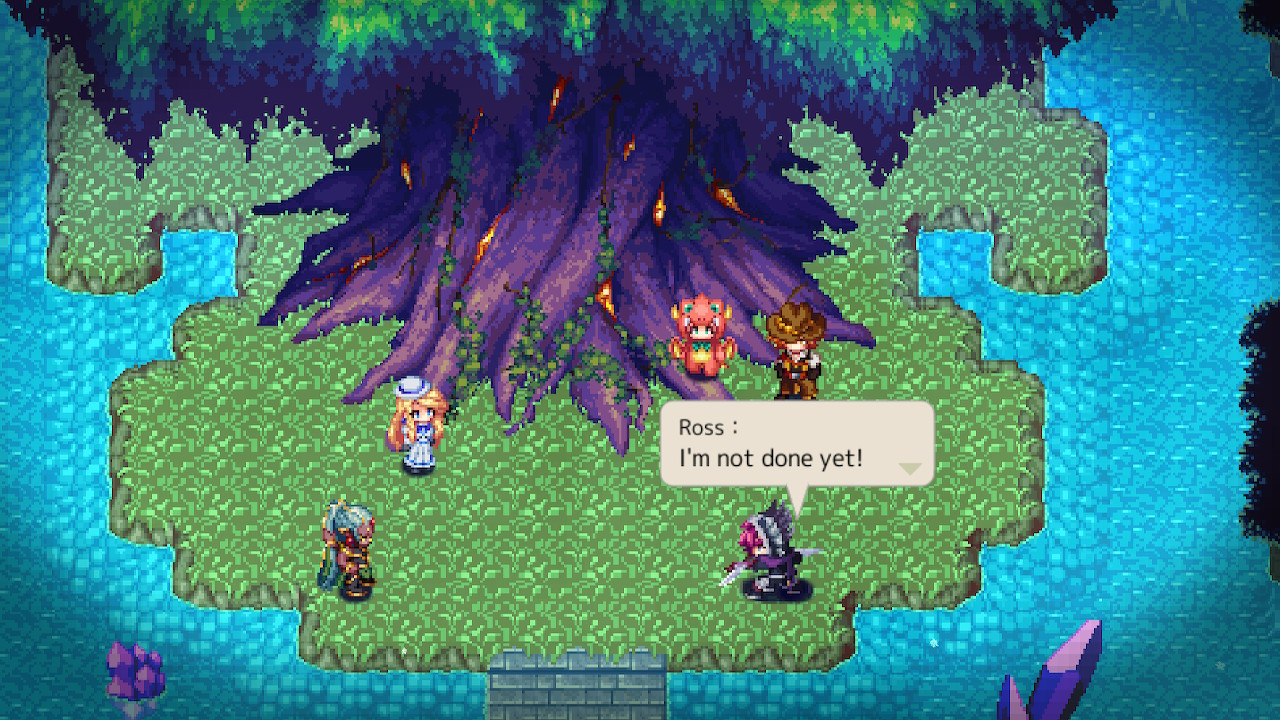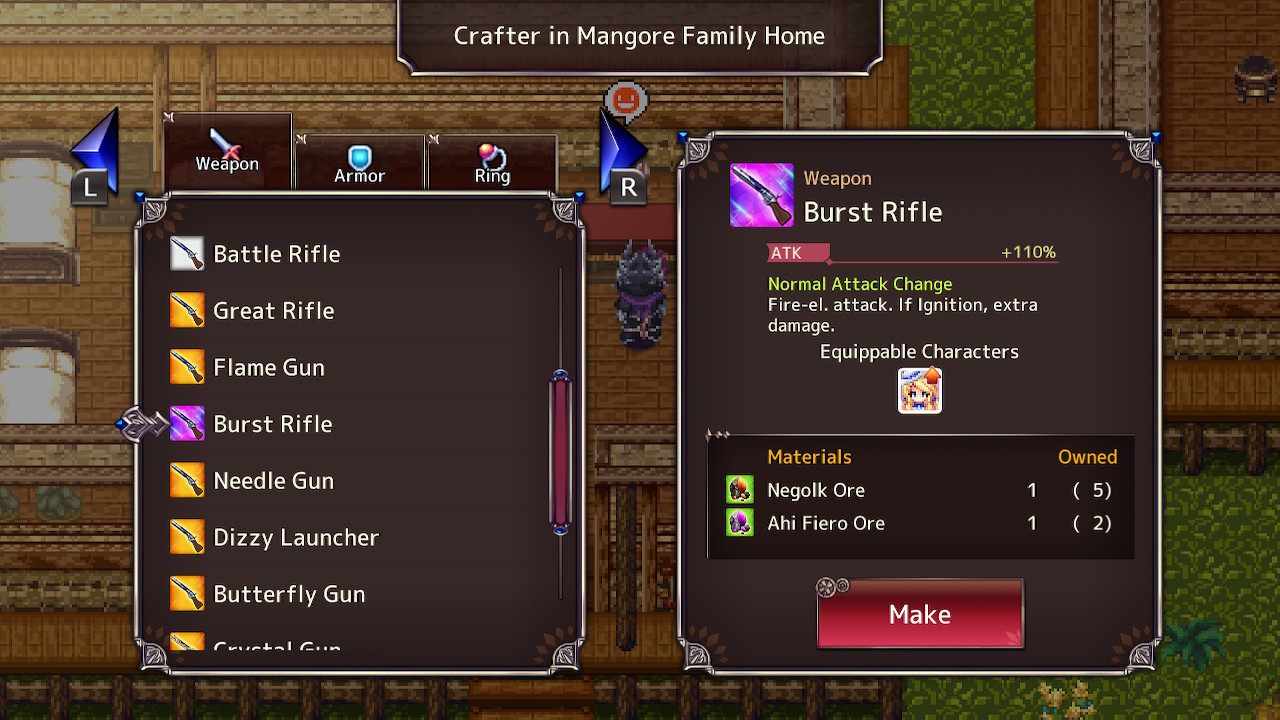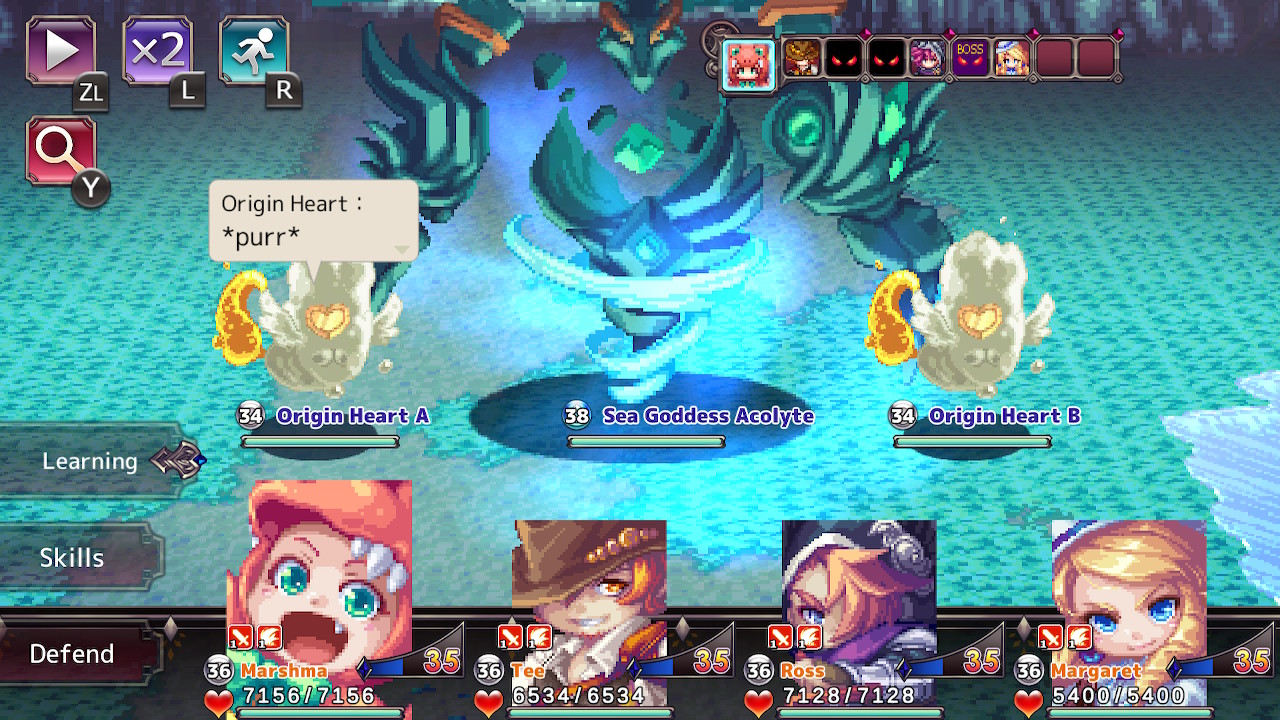The crystal ship is being filled.
Well, if one of your New Year’s resolutions was to spend more time playing retro RPGs, I’ve got good news. KEMCO has released Crystal Ortha for Nintendo Switch, and it’s one of the better games they sent our way in 2020.
There are a few different reasons for this, not the least of which are the game’s graphics. They’re in line with something you’d remember from the Nintendo Gameboy, which is par for the course from KEMCO. With Crystal Ortha, however, the visuals seem more like a modern, loving tribute than a staff/budget limitation, which has sometimes been the case. There’s plenty of color and detail in the environments and sprites that really bring everything to life, and the effect is carried across each element of the game. The battles and cutscenes look like they’re taking place in the same world the characters are exploring. This creates a visual cohesiveness that is lost on many retro-inspired games.
I started the review with this because it’s something that could put off gamers playing in docked mode. Although the UI is more polished, everything else—right down the character profiles during battles—is going to look pixelated on your TV. You’ll definitely want to enjoy this game in handheld mode.
Although Crystal Ortha’s better on the little screen, the game still provides a big adventure. Our hero is a mercenary named Ross who finds himself “hired” by the enthusiastic (if somewhat pushy) Margaret to help her find the mother lode of crystals. Nearly everyone seems to know of this legend, but few have any suggestions as to where it might be. Because crystals power everything from the economy right down to Margaret’s gun, there’s plenty of incentive for adventurers. As such, a couple more eventually join the group: a treasure hunter named Tee and a child named Marshima. Breaking from the standard JRPG tropes, there are no talking cats or other animals to be found, but Marshima is dressed in a dragon costume.
Details about these characters are slowly revealed through the main narrative and through numerous side quests you can pick up along the way. There’s just enough intrigue to keep things interesting, and the game also has a slick sense of humor. You’re not going to laugh out loud playing it, but there were numerous points where the characters’ behavior/dialogue was accented with comedic flair. Crystal Ortha is packed with plenty of JRPG tropes, but it’s all part of the fun.
Thankfully, the game also deviates from some tropes. There are random battles, of course, that are helpful for leveling up. But if you’re growing tired of them, you can explore the overworld in vehicles to limit the number of encounters. There are numerous hidden treasures to find, but there’s no real economy to deal in. You don’t buy armor, for example, you craft it. You can’t even sell the items you’ll no longer use. It’s great to not have to worry about budgets and inventory management for a change, but you’ll quickly find yourself overloaded with items you’re never going to use.
Battles are turn-based, tasking you with deciding whether to use a basic attack or skill, or to defend. But even here, some tropes are left behind. You’re completely healed after each battle, so it’s no big deal if you barely squeak through a fight or finish it with members of your party incapacitated. Even debuffs magically disappear. Your special attack meter starts at the same point with each fight; the amount you used or didn’t use does not carry over. This makes it relatively easy to push through the overworld and dungeon fights, as you don’t need to worry about the efficiency of auto-battle.
Crystal Ortha’s many bosses require more strategy, but there are a few ways to get past them if you’re having trouble. First, you can grind your way through more fights. The characters level up fairly quickly, and using auto-battle means you won’t even have to think during most fights. Second, you can pay close attention to your skills and inventory (weapons, armor, rings, and passive skills called Carmina) to tailor your party for the enemy at hand. At the end of each fight you lose, you’re asked if you want to try again or revert to your last save.
Finally, you can purchase DLC that makes the game easier. Experience x3 and Damage x2 are available for $4.99 each. Either of these will greatly assist you on your way, but could quickly make the game too easy. You can also buy a Magic Poncho that allows you to turn off random encounters in the dungeons.
In other words, Crystal Ortha allows you to play it the way you feel like playing it. It’s never all that difficult, but you’ve got options to make it even easier if you don’t want to give it large amounts of your gaming time. I like that, because its retro visuals and repetitive gameplay make it easier to enjoy in quick bursts…like on a mobile device, where the game is also available for $8.00 less. I can certainly recommend Crystal Ortha for retro JRPG fans, but be sure to consider that price difference before you buy it in the eShop.
Review: Crystal Ortha (Nintendo Switch)
Good
Crystal Ortha offers a breezy adventure that breaks from the norm just enough to please grizzled fans of JRPGs. It looks and feels right home on the Switch, but it’s easier to enjoy in short, handheld gaming sessions as opposed to long hours in front of your TV.

